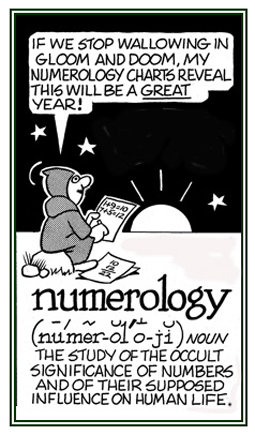-ology, -logy, -ologist, -logist
(Greek: a suffix meaning: to talk, to speak; a branch of knowledge; any science or academic field that ends in -ology which is a variant of -logy; a person who speaks in a certain manner; someone who deals with certain topics or subjects)
The word -ology is a back-formation from the names of certain disciplines. The -logy element basically means "the study of ____". Such words are formed from Greek or Latin roots with the terminal -logy derived from the Greek suffix -λογια (-logia), speaking, from λεγειν (legein), "to speak".
The suffix -ology is considered to be misleading sometimes as when the "o" is actually part of the word stem that receives the -logy ending; such as, bio + logy.
Through the years -ology and -logy have come to mean, "study of" or "science of" and either of these suffixes often utilize the form of -ologist, "one who (whatever the preceding element refers to)".
The examples shown in this unit represent just a small fraction of the many words that exist in various dictionaries.
2. The study of diseases and, in particular, their classification, grouping, ordering, and relationship to one another; it includes the formulation of principles for differentiating one disease from another.
3. The classification of ill people into groups, whatever the criteria for the classification, and agreement as to the boundaries of the group.
![]() When diseases started to become plagues is explained at this nosology page.
When diseases started to become plagues is explained at this nosology page.
2. The study of senility, gerontology, and geriatrics.
Based on the idea that some aspects of "later life [senility] is somewhat like returning to early years".
2. The study of the occult meanings of numbers and their supposed influence on human life: Numerology is the study of the mystical or esoteric relationships between digital notations and the character or action of physical objects and living things.
The numerologies of divination were popular among early mathematicians; such as, Pythagoras, but they are no longer considered to be part of mathematics and so they are now regarded as a pseudoscience by most mathematicians.
The beliefs in numerology are similar to the historical development of astronomy which is separated from astrology; as well as, that of chemistry from alchemy.

Go to this Word A Day Revisited Index
so you can see more of Mickey Bach's cartoons.
2. The explorations and scientific studies of all aspects of the ocean: Oceanology includes geophysical phenomena, underseas exploration, and oceanography.
2. An individual who grinds the lenses for eyeglasses according to a prescription: To be an optician requires a careful and steady hand when operating the equipment to grind the lenses for spectacles.
Years ago, the oculist was like a travelling salesperson who would come to a person's door; open a suitcase, and demonstrate the wares.
Now, someone can go in for more specialized services: A person can be referred by his or her optometrist to see an ophthalmologist if the optometrist suspects she or he has an eye disease.
If the ophthalmologist gives someone a prescription for new glasses, he or she can go to the optician to have the prescription filled.


